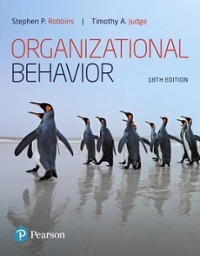In Covington, Louisiana, two police officers became certified as cultural diversity trainers. By taking on this role,
Question:
In Covington, Louisiana, two police officers became certified as cultural diversity trainers. By taking on this role, they have committed to working with other members of the police department to help improve relations between police and the surrounding communities to save lives. Sgts. Jake Lehman and Detective Kevin Collins went to Norman, Oklahoma, where they became certified instructors through the Racial Intelligence Training & Engagement (RITE) academy. RITE seeks to assist police officers in learning ways to understand their biases and improve their communication skills by focusing on emotional and social intelligence, ultimately seeking to improve their ability to deescalate charged situations. “The idea is to deescalate whenever possible—which in turn will reduce use of force incidents,” their police chief Tim Lentz notes.
Many police and public safety departments across the United States are seeing a renewed push to implement or improve diversity training programs because of the contentious nationwide debate surrounding the use of excessive force by police against minorities. For example, a recent settlement between the U.S. Justice Department and the city of Ferguson, Missouri, required the hiring of a monitor to analyze patterns of arrest and force, diversity training for police, and the use of body cameras. These changes come in the wake of the tragedy in which Michael Brown, an 18-year-old unarmed black man, was fatally shot in 2014.
Overall, diversity training can take many shapes and forms. But how effective is it at improving an understanding of diversity and reducing prejudice? A largescale review of over 250 independent studies found that trainees react positively to diversity training and that it appears to be quite effective at improving the way trainees think about diversity, although it affects behavior to a lesser degree. Overall, diversity training worked best when accompanied by other diversity management approaches that focused on both diversity skill development and awareness, and when continuously implemented over time (instead of just a one-time training exercise). Many have found that the most effective programs engage people in working toward diversity goals, increase contact among various demographic groups, and draw on people’s desire to help one another.
On the other hand, it appears as if many are not sold on the effectiveness of diversity training. For example, some note that there is a large obstacle to overcome: We are wired to make quick interpretations and automatic judgments. According to the esteemed behavioral economist, Daniel Kahneman, “Trying to outsmart bias at the individual level is a bit of a fool’s errand, even with training. We are fundamentally overconfident ... so we make quick interpretations and automatic judgments.” Some diversity programs have failed because they too often attempt to control managers’ and employees’ behavior. Instead, many have advocated for changing the decision-making context and environment (changing the diversity policies and climate) so that employees can become more aware of their biases and make decisions that do not discriminate toward others.
Either way, managers across a variety of industries and contexts are motivated to implement diversity management activities in their organizations to promote equity and positive interactions among their employees.
Questions
1. If you were to develop your own diversity training plan for an organization, what would you do? What parts of the training plan do you think would have to be present for it to work?
2. A variety of industries have unique problems that come with a lack of understanding of diversity. Can you think of any industries struggling with a lack of diversity? How can diversity training be tailored to these industries?
3. Do you think diversity training is effective? If so, what about it makes it effective? If not, what would you do to improve diversity outcomes in organizations?
Step by Step Answer:

Organizational Behavior
ISBN: 9780134729329
18th Edition
Authors: Stephen RobbinsTimothy JudgeTimothy Judge, Timothy Judge





